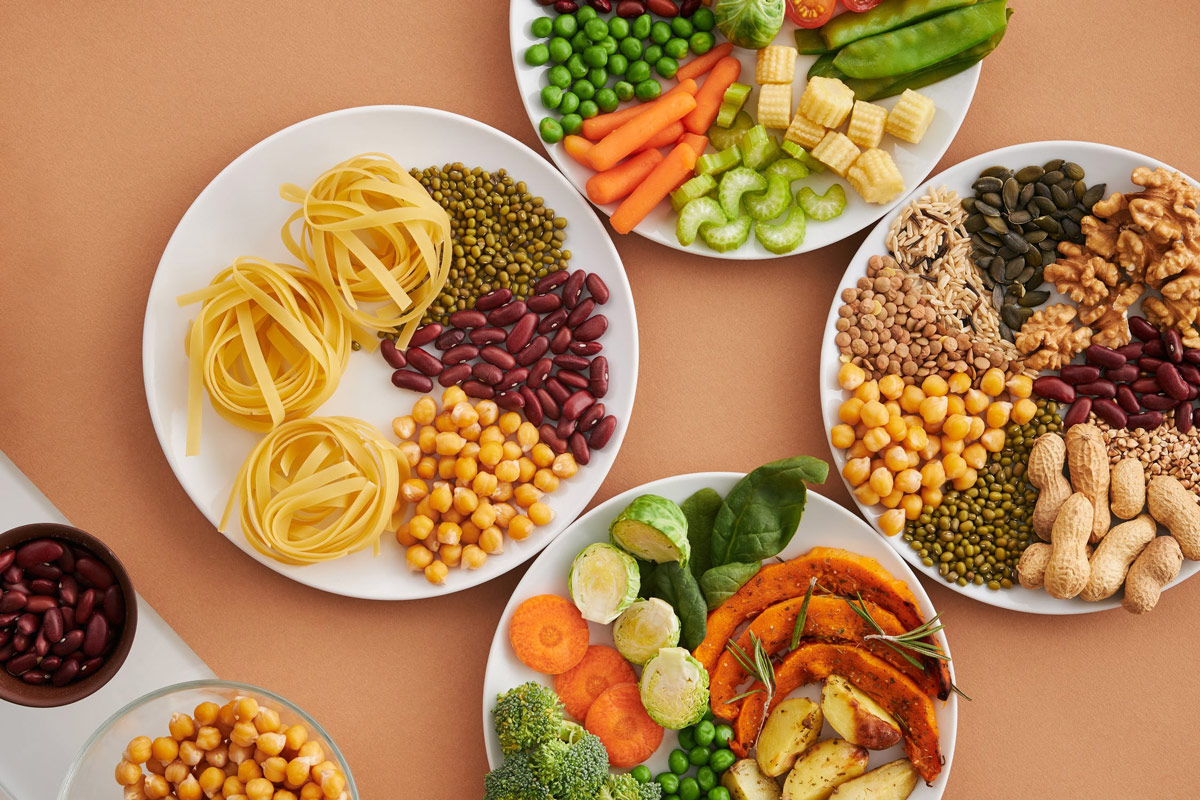
There is an overwhelming amount of information about how to eat healthy and get the nutrition you need. It can be hard to sort through the articles, blogs and studies to find credible facts. Even when you do find information backed by doctors, it may not apply to your individual body and health conditions. The more you know about the basics of nutrition, the easier it becomes to pick out what’s best for you.
A hot topic in the world of nutrition that dietitians, nutritionists and doctors are talking about is protein. We know it’s important, but do we know why? Keep reading to learn the ins and outs of the most talked about macronutrient: protein.
Protein is a macronutrient responsible for many important bodily functions. Macronutrients are our main source of calories and what gives us energy. There are at least 10,000 different proteins in your body that are in charge of chemical reactions, fueling the hemoglobin that delivers oxygen into your blood, building muscle and more. The Harvard T.H. Chan School of Public Health “recommends that adults get a minimum of 0.8 grams of protein for every kilogram of body weight per day, or just over 7 grams for every 20 pounds of body weight.” For a 200-pound person, that means about 70 grams of protein each day. Not eating enough protein can leave you feeling lethargic and still hungry even after a meal.
If you have been falling short on the amount of protein you’re supposed to eat, you’re not alone. Many people struggle to maintain a balanced diet along with day-to-day responsibilities like work and family. Knowing which foods are high in protein can make it easier and more fun to get your daily amount of protein. Live Science shared that “all food made from meat, poultry, seafood, beans and peas, eggs, processed soy products, nuts and seeds are considered part of the protein group, according to the United States Department of Agriculture.” All of these options are great ways to add more protein to your diet but some sources offer more benefits than others. There are foods called complete proteins that contain all of the essential amino acids, - those amino acids your body cannot create on its own. Complete proteins are often combinations of two high-protein foods. Some examples of complete proteins are meat and dairy products, quinoa, hemp seeds, chia seeds and soy.
Try protein packed plant-based alternatives
Plant-based food products are becoming increasingly popular for their high-protein content and potential health benefits. For vegetarians, vegans, flexitarians and those looking to explore meat alternatives, plant-based options are for you. They are just as nutritious as meat and can have other benefits, as well. In a study on the health benefits of vegetarianism, doctors found that “vegetarian diets appeared to have significant benefits on weight reduction compared to non-vegetarian diets.”
Plant-based foods can be combined to create complete protein meals. In the University of Massachusetts NIBBLE Directory, a guide to nutrition, they offer a number of plant-based pairings to create complete proteins. Peanut butter on wheat bread, rice and beans, and split pea soup with corn bread are all good examples of strong protein pairings.
Your diet affects your health and your mood. With so many different ideas on what the “perfect” diet looks like, it's important to know what your body actually needs. Protein is an important factor in anyone's diet and knowing a variety of high-protein foods can make it easier to get the amount you need. For the vegetarian foodies, new, protein-rich, plant-based foods offer you more choices to enjoy.